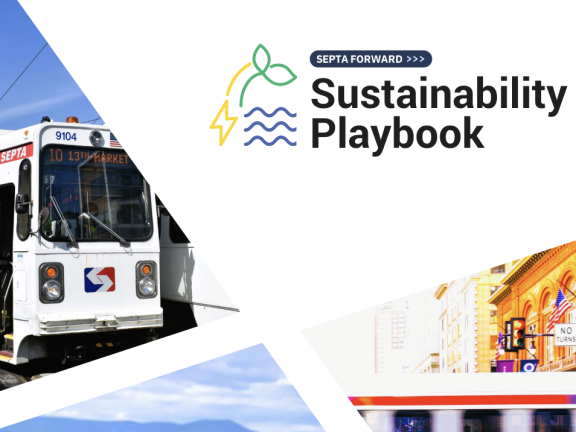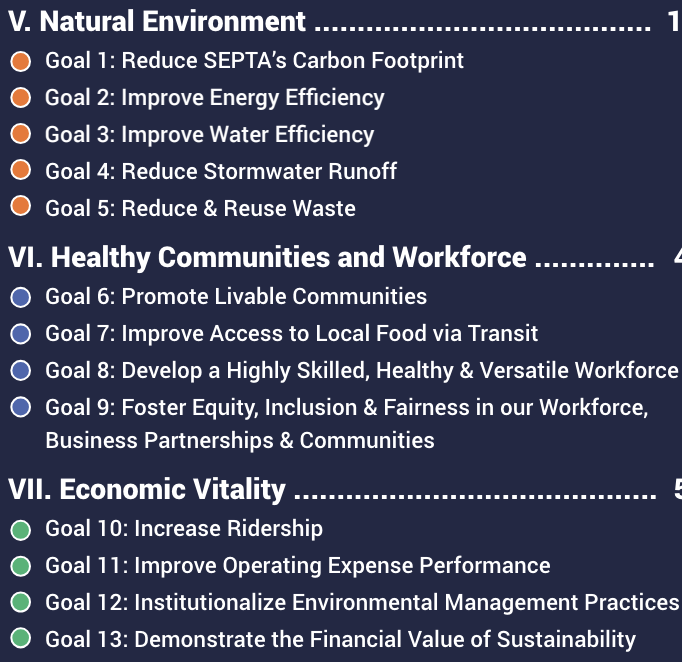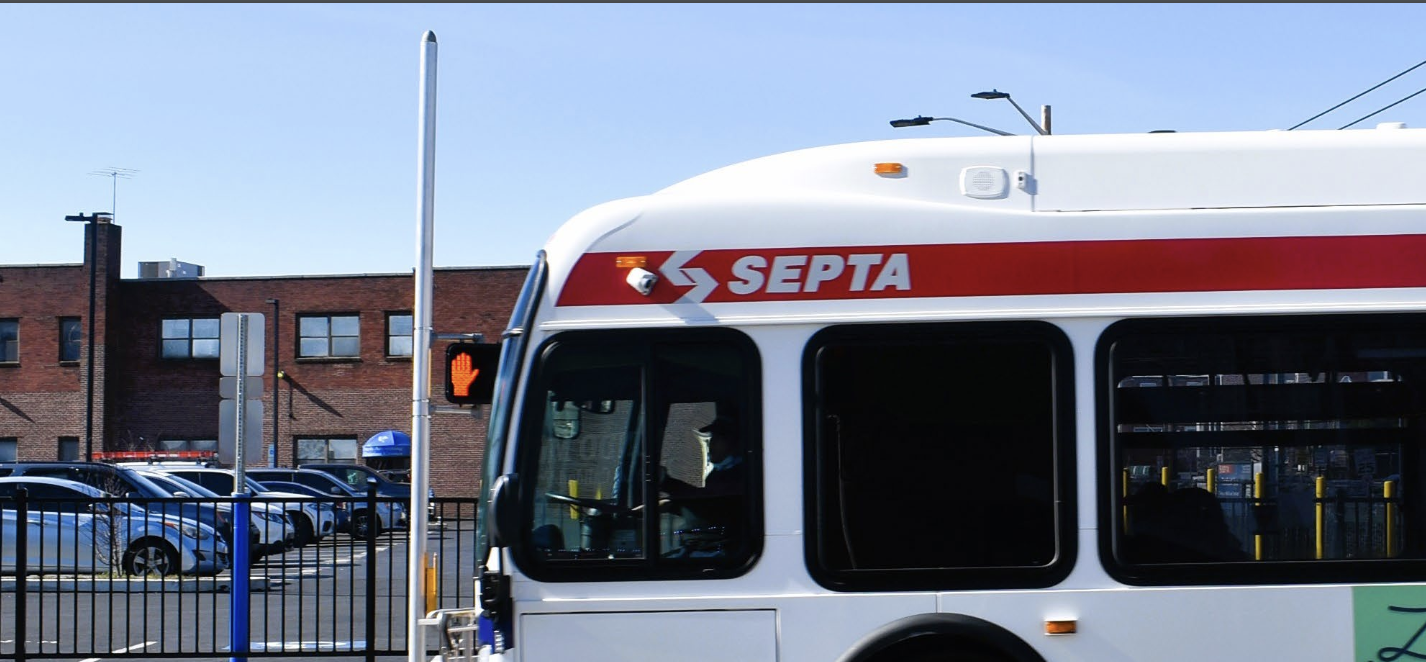How SEPTA is Driving Change for a Sustainable Future

As our city strives to make positive changes in infrastructure and meet Sustainable Development Goals (SDGs), more Philadelphia-based companies are stepping up to make changes for their community. Among them is the Southeastern Pennsylvania Transportation Authority (SEPTA).
 SEPTA has released its plans for a new sustainability initiative in their new Sustainability Playbook, reaffirming its dedication to environmental health and a more equitable future. These plans, focused on addressing environmental challenges, also emphasize the importance of fostering healthy communities and economic vitality, recognizing the interconnected nature of these issues. Yet, challenges await as SEPTA looks to overcome the impacts of the pandemic and slow funding.
SEPTA has released its plans for a new sustainability initiative in their new Sustainability Playbook, reaffirming its dedication to environmental health and a more equitable future. These plans, focused on addressing environmental challenges, also emphasize the importance of fostering healthy communities and economic vitality, recognizing the interconnected nature of these issues. Yet, challenges await as SEPTA looks to overcome the impacts of the pandemic and slow funding.
SEPTA has been proactive in sustainability, setting goals since 2011, and in 2017, SEP-TAINABLE 2020 encompassed their most ambitious set of goals yet. However, as the COVID-19 pandemic hit and reshaped urban mobility, SEPTA faced unprecedented obstacles that affected its ability to meet its sustainability goals. The 2024 playbook reviews past successes and assesses the failures of the company to achieve all SEP-TAINABLE steps thus far, recommits to unmet goals, and sets even more ambitious objectives, including achieving net zero emissions by 2050.
The playbook includes 13 goals for SEPTA to work toward. The first set addresses the natural environment:
- Reduce SEPTA’s Carbon Footprint
- Improve Energy Efficiency
- Improve Water Efficiency
- Reduce Stormwater Runoff
- Reduce & Reuse Waste
SEPTA will need to hit marks such as decreasing greenhouse gas emissions by 40% by 2030, retaining a zero-emission bus fleet by 2040, and emitting zero greenhouse gases by 2050. The majority of reduction goals aim to decrease consumption of respective materials by 20%.
The next goals pertain to healthy communities and workforce:
- Promote Livable Communities
- Improve Access to Local Food Via Transit
- Develop A Highly Skilled, Healthy, and Versatile Workforce
- Foster Equity, Inclusion & Fairness in our Workforce, Business Partnerships & Communities
These goals will be realized through the development of new properties, innovative uses of SEPTA properties (like farmers markets), and the creation of career and partnership opportunities for minority communities.
As a major employer in the region, this set of goals aligns closely with SDG #8, Decent Work and Economic Growth, SDG #9: Industry, Innovation, and Infrastructure, and SDG #11: Sustainable Cities and Communities.
SEPTA’s Corporate Sustainability Initiatives Manager, Anne Tyska, explained how the UN’s SDGs directly impact SEPTA’s efforts and why addressing economic problems in conjunction with environmental problems is so vital. “Goals that further our environmental objectives often simultaneously advance social and economic goals. For instance, SDG #11: Sustainable Cities and Communities, influences our environmental goals, economic vitality goals, and goals for healthy communities and workforce. By implementing zero-emission vehicles and enhancing green stormwater infrastructure, we help make local communities more livable and healthier for those who live here, while capitalizing on the reduced costs of renewable energy or electricity vs. diesel or fuel oil. It’s all interconnected, which is why it’s important to consider these factors from a holistic perspective.”
As for the steps that will encourage economic vitality in Philadelphia, SEPTA will:
- Increase Ridership
- Improve Operating Expense Performance
- Institutionalize Environmental Management Practices
- Demonstrate the Financial Value of Sustainability
SEPTA acknowledges the reality of post-pandemic Philadelphia throughout this playbook. Ridership has only seen a 64% return, as more people work from home but also look to avoid the unfortunate rise in crime and security risks that have come about since 2020. SEPTA’s revenue has suffered, slowing down progress toward sustainability goals.
Important lessons have come from the past few years. Anne shared that SEPTA “learned that our initiatives must be able to quickly adapt to changing circumstances, whether they are related to public health crises, economic fluctuations, or shifts in commuter behavior. By integrating adaptability into our planning processes, we can better plan for the continuity and effectiveness of our services in the face of future challenges.”
One major step this year that will take place is the authority's transition to "a 100% green bus fleet in early 2024, when the last diesel buses are retired. New hybrid buses entering the fleet use less diesel than first generation hybrids." This step is one of the first aimed towards reducing emissions on a larger scale.

Consequently, boosting ridership has become a secondary goal. “After our ridership plunged in 2020, SEPTA has been implementing various initiatives to regain ridership, such as improving the fare system to make it easier to pay and ride, and establishing new partnerships under the Key Advantage Program, which allows employers to offer SEPTA as a benefit,” explained Anne. “These efforts, among others, are geared towards making the system more efficient and effective for those who rely on it.”
As people buy more train tickets, more of the budget has the potential to be attributed to sustainability efforts, and in turn, emissions produced by personal vehicles will decrease. This cyclical effect will increase city sustainability efforts and encourage collective action for a greener future. The key to all of these goals is the ability to demonstrate the tangible benefits of sustainable efforts in generating additional funding that can assist in boosting SEPTA to meet these goals.
Public transportation is inherently more sustainable than private transportation, but it is reassuring to see that SEPTA has not put sustainability on the back burner as other issues have arisen. Also important to note is the fact that more plans are underway to support SEPTA’s sustainability initiatives, as Anna describes.
In addition to the playbook, “SEPTA released an updated Environmental Policy Statement which commits to operating in an environmentally responsible manner, emphasizing safety, sustainability, and resilience in our infrastructure and operations, while also reducing emissions and minimizing our contribution to environmental degradation and climate change. We are lucky to have the support from top leadership to advance sustainability as a priority. We are now at the beginning stages of developing a sister-document to the Sustainability Playbook which focuses on climate.”


